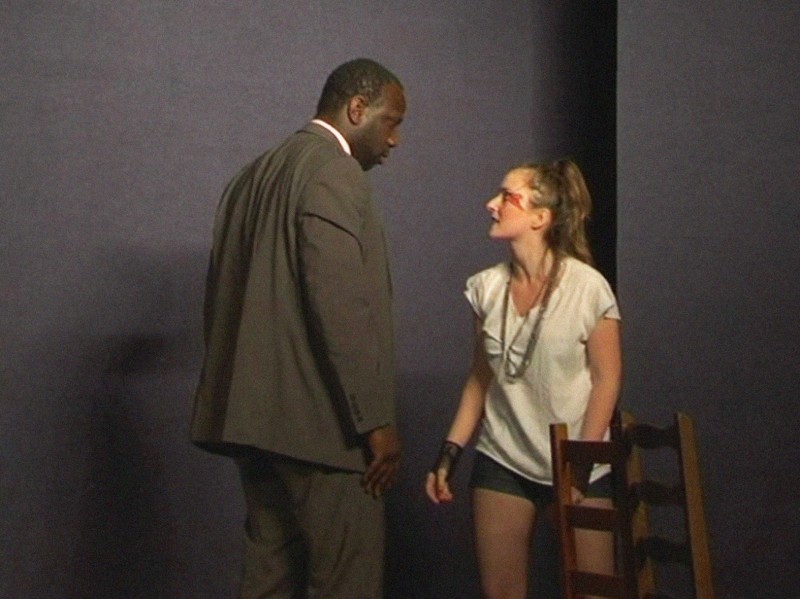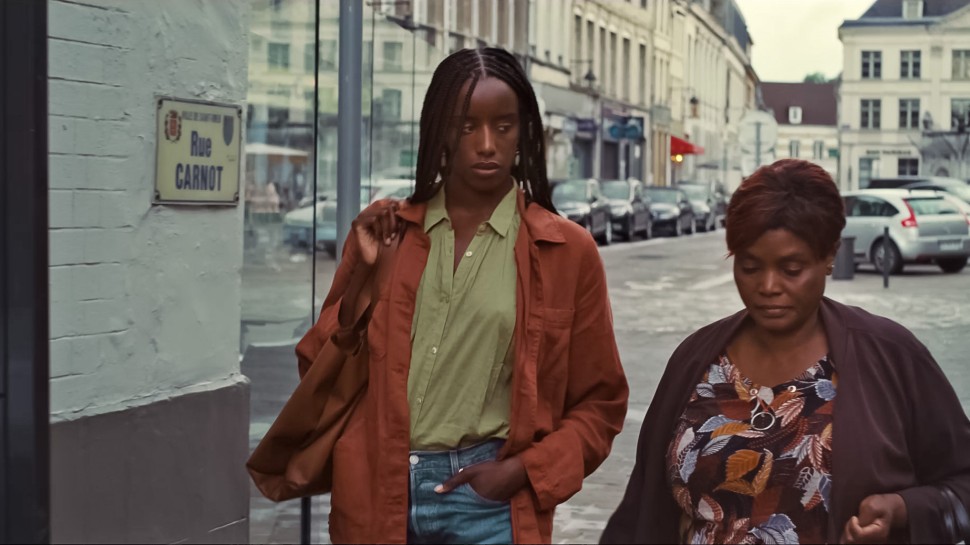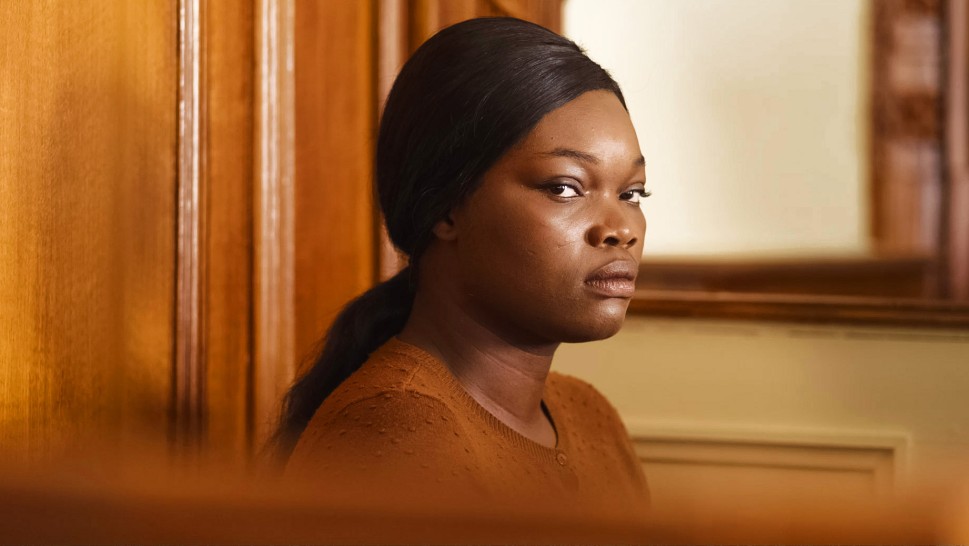



Alice Diop’s Souvenirs of Lost Time
The City of Love is one of the most well-represented metropolises in the history of cinema, but through the eyes of filmmaker Alice Diop (b. 1979), the French capital appears in a new light. This reorientation is less a matter of reality-bending aesthetics—the province of, say, a director like Jean-Pierre Jeunet—than of a shift in angle of view, a redirection of attention. Born in the largely immigrant banlieues of outer Paris to Senegalese immigrants, Diop became indelibly marked by her milieu from a young age and, like the many African and Arab subjects in her documentaries, came to regard the city center as something at best insufficiently welcoming, at worst outright hostile, to nonwhite outsiders. Though she earned a master’s in History, a doctorate in Visual Sociology, and a degree in documentary filmmaking from La Fémis, Diop didn’t pursue a life in the reputable quarters of academia—which is not to say her studies do not profoundly inform her art. Instead, she returned home to bear witness to the communities she grew up around, a self-described obsession that has now spanned over a decade’s worth of films.
Inspired by figures like Jean Rouch, Maurice Pialat and Claire Denis—all of whom are widely regarded as purveyors of unsentimental, poetically tinged naturalism—Diop trains her camera on the mundane. Her subjects are workaday Parisians, many of them long-distance commuters, whose lives are shaped in ways both imperceptible and overt by the injustices of modern-day France. Her first film, Danton’s Death (2011), presents an emblematic figure in the form of an aspiring Black actor chafing against the subtle microaggressions of a reputable performing arts institute (and the self-perpetuating, societally reinforced anxieties within his own mind), though the film is somewhat anomalous in Diop’s body of work for its ostensibly constricted focus. Subsequent films accommodate an increasingly panoramic point of view, culminating in the aptly titled We (2021), which surveys a wide swath of characters united by their proximity to the RER train that appears throughout Diop’s filmography with Ozu-like regularity.
The word “characters” is not used indiscreetly, as Diop never disguises the fact that her films are collaborations with her camera subjects rather than fly-on-the-wall documentations of reality. In addition to their rigorous framing and suggestive editing, Diop’s films foreground the presence of the director herself, either as an inquisitive off-screen interlocutor (in Danton’s Death and Towards Tenderness (2016)), an on-screen participant and archival presence (in We), or an implicit protagonist surrogate (in Saint Omer (2022)). Furthermore, the immersive methods deployed in the preproduction stages of her films, with Diop spending considerable time gaining the trust of her subjects before cameras roll, pay off in the degree of intimacy captured onscreen, while also permitting a level of framing and blocking not achievable within the traditional understanding of verité documentary. Diop of course has contemporaries in this practice—notably Roberto Minervini and Gianfranco Rosi, whose oeuvres are similarly shaded with tensions between the immigrant and the native-born—but what is unique about her work is its homegrown specificity and deliberate superimposition of the personal and the collective.
With Saint Omer, Diop has made what many have called her first leap into fiction, though the film, albeit indulging further formal interventions than before, is ultimately not so distinguishable in intent or method from her prior work. (In one particularly notable parallel, we see shot-on-DV home movie footage of the film’s protagonist as a child that uncannily resembles the home videos from Diop’s own vault that recur throughout We.) Motivated by the 2016 infanticide trial of Fabienne Kabou, which Diop attended of her own volition, Saint Omer conjures a modern-day hybrid of The Passion of Joan of Arc (1928) and Medea (1969) that’s gripped by the concerns coursing through Diop’s documentaries: the phenomenological experience of the immigrant in France; the reverberations of history; the inextricable bonds of family and the complexities of the mother-daughter relationship. As a piece of testimony to a multifaceted woman who has been othered by the French judicial system and media, the film is also in line with the modest but essential aim at the core of Diop’s entire filmography: the desire to represent the unrepresented and, as it’s put in We, to “have a souvenir” of lost time. – Carson Lund
The Gardner Film Study Center Fellowship, established in the name of filmmaker and FSC founder Robert Gardner, is awarded annually to outstanding filmmakers around the world. The fellowship comes with a stipend to support innovative filmmaking, together with an invitation to engage the vibrant community of FSC Fellows and CMP students through an in-person visit, including a screening at the Harvard Film Archive. In keeping with this important tradition, the 2023 Gardner Film Study Center Fellow Alice Diop will appear at the Harvard Film Archive to present and discuss her celebrated latest film, Saint Omer.











